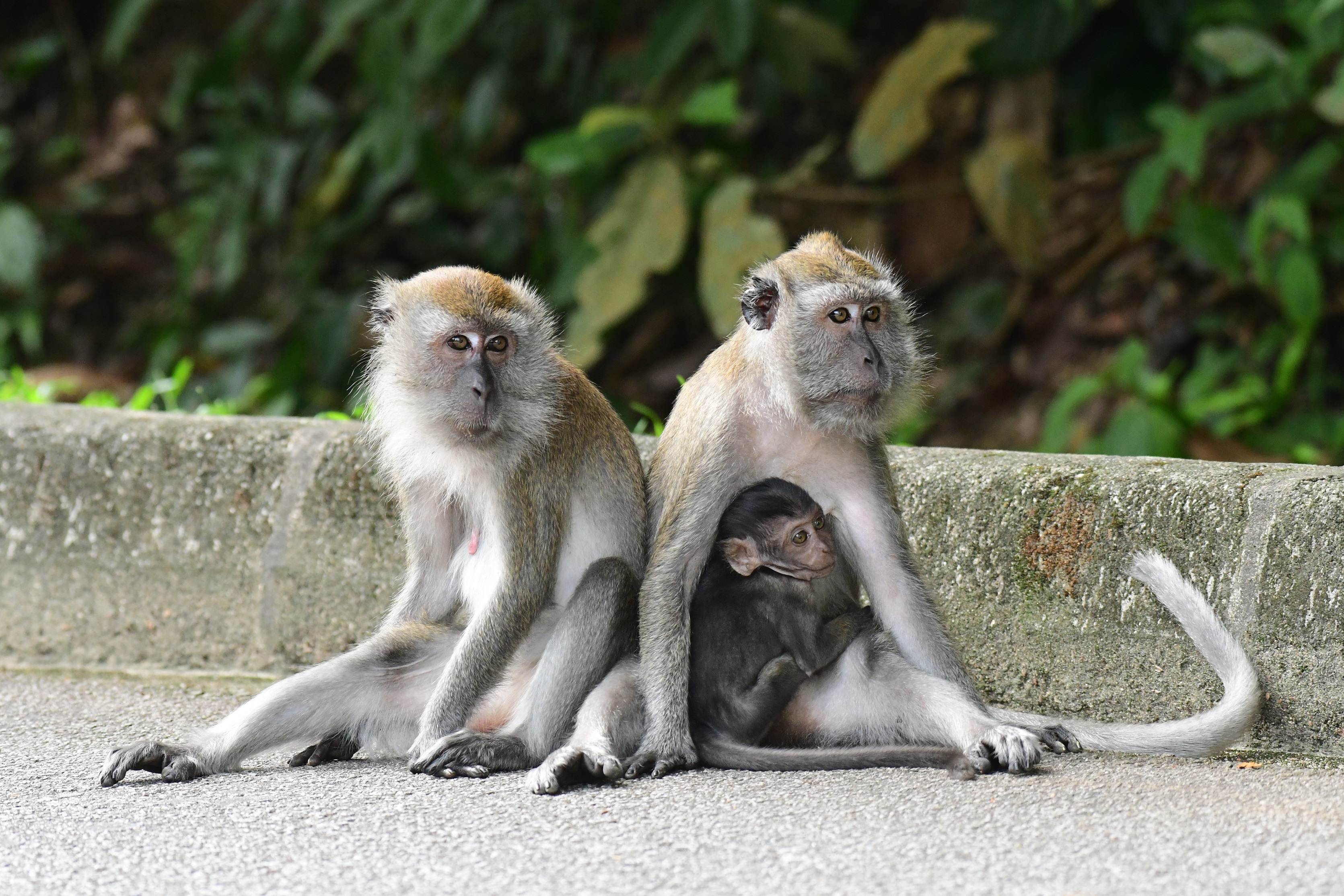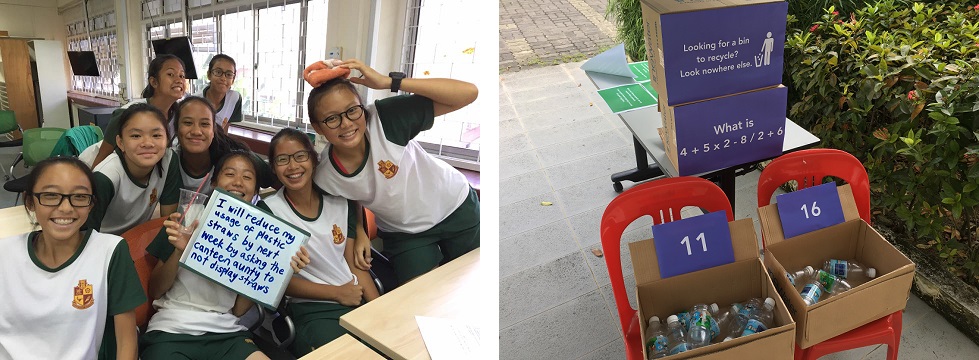Tackling Singapore's Solid Waste Problem is Key Concern Among Applicants of the #OCBCCares Fund of the Environment
Tackling Singapore's Solid Waste Problem is Key Concern Among Applicants of the #OCBCCares Fund of the Environment

Singapore, 6 March 2018 – Oversea-Chinese Banking Corporation Limited (OCBC Bank) today shared that of the 28 proposals it received, seeking funding from the #OCBCCares Fund for the Environment, 14 were about waste reduction or how to enhance recycling efforts. The solutions ranged from tackling contaminated recyclables, food composting, repair clinics, and going disposables-free to changing consumer perception of ugly or slightly damaged food.
The result is not surprising given the growing concern that Singapore’s solid waste output has increased significantly over the years. According to the National Environment Agency, the amount of waste sent for disposal rose from 7,023 tonnes per day in 2006 to 8,559 tonnes per day in 2016.
The #OCBCCares Fund for the Environment was launched in July 2017, committing $100,000 annually to financially support, in full, ground-up projects that enhance Singapore’s environmental landscape, an area where private sector sponsorship remains relatively thin on the ground.
Supporting 6 projects costing $87,000
Based on the recommendation of the Fund’s evaluation committee, OCBC Bank will provide full financial support for six projects totaling $87,000.
Ms Koh Ching Ching, OCBC Bank’s Head of Corporate Communications said, “We were prepared to provide funding beyond $100,000 and only for a couple of projects, thinking that the outlay for environmental projects would be high. The fact that we can fund six projects at an amount less than our Fund commitment is positive indication that initiatives to protect our environment need not be expensive missions! This means that there is a lot we can do for environmental sustainability and we hope other organisations can also come aboard to support this cause.”
The Fund received proposals for amounts ranging from $2,000 to $150,000.
Good indication of proactive response from the community
“Our purpose for launching the #OCBCCares Fund for the Environment is to drive ground-up action to engage the community to take ownership in protecting our environment. The encouraging response to the Fund’s inaugural call for proposals shows that are many individuals who care about Singapore’s environmental sustainability and are committed to rallying others to tackle climate change,” added Ms Koh.
Mr N Sivasothi, Chairman of the evaluation committee is pleased that applicants came from diverse backgrounds, and of ages ranging from 20 to 69. “There are those with good track records, with clear ideas of how they can initiate solutions; as well as young people with interesting proposals that they want to attempt. This will definitely inspire many others to consider the types of action they can take at community and national level,” he commented.
Eight-month process to select final projects
The process, from launch of the Fund to final selection of projects to support took slightly more than eight months. This included a training workshop conducted by OCBC Bank staff volunteers to equip potential applicants with project management; financial planning; budgeting know-how and presentation skills. The workshop, held in August 2017 attracted more than 50 participants.
Shortlisted applicants also underwent intensive consultation sessions and interviews with members of the evaluation committee who provided advice on project parameters, pitfalls, gaps that needed addressing and avoiding duplication of existing efforts.
The evaluation committee, chaired by Mr N Sivasothi, Senior Lecturer at the National University of Singapore, Department of Biological Sciences included representatives from the National Environment Agency, Ms Sueanne Mocktar, Director, 3P Network Division; National Parks Board, Dr Lena Chan, Group Director, National Biodiversity Centre; PUB, Singapore’s National Water Agency, Mr Tan Nguan Sen, Chief Sustainability Officer, Sustainability Office; and OCBC Bank, Ms Koh Ching Ching, Head, Group Corporate Communications.

Going disposables-free and preventing contamination of recyclables
Of the 14 waste management solutions proposed, the evaluation committee selected two projects to fund.
Pamela Low, a National University of Singapore undergraduate, founder of Tingkat Heroes and member of Singapore Youth for Climate Action, will receive financial support for her eco-curriculum for the students and staff of Tanjong Katong Girls’ School (TKGS) to go disposables-free by the end of 2018. She is also working with the Office of Housing Services at the National University of Singapore (NUS) to align halls and residences to be disposables-free in their main daily operations by the next academic year in August 2018. The student leaders of TKGS and NUS will go through a comprehensive eco-program that will educate, equip them with skills and empower them to take greater ownership of the waste management and recycling efforts at their respective schools.
Heng Li Seng, who works in a social enterprise, aims to redesign the way recycling is currently being done at mass and sporting events by applying behavioural insights to encourage people to divert recyclable materials in bins to prevent contamination. This occurs when the items are unknowingly thrown into the same bins – presently up to 40% of items collected in recycling bins are contaminated by other types of wastes, such as food waste and have to be thrown away. His project, “Green Nudge”, involves designing and setup of signs and manned recycling booths that encourage responsible disposal of litter. OCBC Cycle Singapore, to be held on 5 and 6 May 2018, will be the test bed for implementation of Li Seng’s solution.
Addressing the growing urgency to reduce carbon footprint
While Singapore has seen a groundswell of action to minimise waste and to rally the community to reduce, reuse or recycle, there is also increasing awareness of the urgency to decrease our carbon footprint. This is evident by the number of proposals the Fund received, calling for action to restore the environment and to enhance biodiversity. The #OCBCCares Fund for the Environment will therefore finance three such proposals as well as one on clean waterways.
Project Sarimbun, proposed by Rover Scouts Karl Png, Rishab Patwari and Muhammed Syafiq Bin Mohamed Sahrom, involves introducing green initiatives at the Sarimbun scout campsite, primarily to encourage an 8,000-strong scout community to adopt eco-friendly practices and appreciate nature. This will be achieved by transforming the campsite into a biodiversity centre through re-forestation of native flora and fauna; introduction of a food composting centre, using food remains disposed by regular camp users; development of nature trails; and conducting aquatic and wildlife surveys. The scouts have plans to open the site to the community once transformation of the land is completed.
The Macaque Working Group’s project, led by Andie Ang, would be welcomed by residents living around forest reserves such as MacRitchie and Pierce Reservoirs. They have been grappling with the problem of living in close proximity with long-tailed macaques that enter homes, attracted to food sources. The group intends to use their funds to train more people to herd macaques away from urban areas through non-intrusive actions that serve as negative reinforcement.
OCBC Bank will also fund a proposal by the Animal Concerns Research and Education Society (ACRES) to educate the public on how to co-exist with wild animals such as snakes, civets, wild boar and birds and to minimise human-wildlife conflict.
As for the Waterways Watch Society, OCBC Bank’s funding will enable the organisation to purchase bicycles to support its growing pool of Punggol volunteers who are keen to raise awareness about keeping the Punggol Waterway clean and picking litter as they cycle.
Next call for proposals will be in July 2018
The #OCBCCares Fund for the Environment will be calling for new entries in July 2018. The Fund is open to individuals and interest groups with implementable environmental sustainability initiatives that will deliver benefits for Singapore and the community.
Media Queries
Iris Tan
